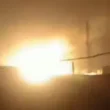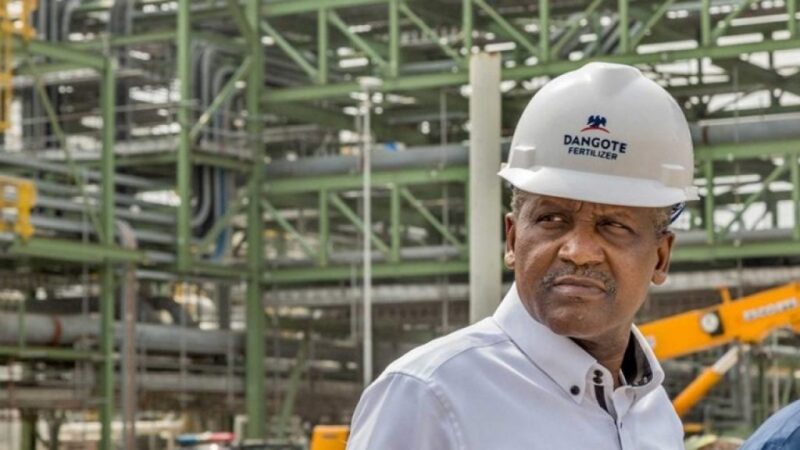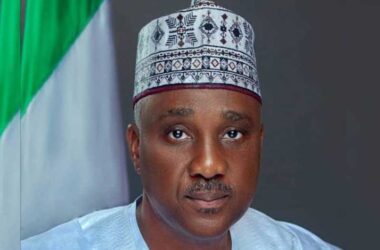Domestic oil refiners and officials from the Dangote Petroleum Refinery are raising concerns over the recent decision by major oil marketers in Nigeria to begin importing Premium Motor Spirit (PMS), commonly known as petrol, following the Federal Government’s deregulation of the oil sector. These industry players have pointed out that the imported petrol is of lower quality compared to what is produced locally at the Dangote refinery, located in Lekki, Lagos.
Earlier reports revealed that three major oil marketers in Nigeria were expecting shipments of imported petrol in the coming days, amounting to approximately 141 million litres. This development follows the full deregulation of the country’s downstream oil sector, which has allowed marketers to import PMS after the Nigerian National Petroleum Company Limited (NNPCL) increased the price of petrol produced by the Dangote refinery earlier this week.
However, officials at the Dangote refinery, along with members of the Crude Oil Refiners Association of Nigeria (CORAN), have expressed strong opposition to these imports, arguing that such moves are unnecessary and could harm the Nigerian economy. The core of their argument is that the quality of the imported petrol is inferior and poses health and environmental risks to the country.
“These people (marketers) are importing dirty fuels that are toxic,” an anonymous source from the Dangote refinery stated. The source further added that the imported fuels are substandard and could lead to significant environmental damage if the practice is not stopped. “We have more than enough fuel, but these guys don’t want it. They want the game to continue, but the game will not continue.”
Another official from the refinery expressed concern that Nigerians should be more aware of the quality of fuel being imported. He stated, “You have to be concerned about the quality of the products they import. These are toxic fuels when you consider their blending process. All this is just to maximise profit.”
The Dangote refinery is a $20 billion project aimed at boosting Nigeria’s local refining capacity. With this refinery in operation, officials believe that the importation of PMS is not only unnecessary but detrimental to the nation’s economy. Moreover, they argue that it increases demand for US dollars, which negatively impacts Nigeria’s foreign exchange reserves and further devalues the naira.
Eche Idoko, the Publicity Secretary of the Crude Oil Refiners Association of Nigeria, echoed these concerns, stating that some of the substandard fuels being imported are blended in foreign locations such as Malta and Togo. Idoko also highlighted the fear among some marketers that Dangote would monopolize the Nigerian petroleum market. He assured that this concern has been addressed, as Dangote is a member of their association, and with the Petroleum Industry Act in place, it is impossible for Dangote to dominate the market unchecked.
“The fear marketers are having is that Dangote will become a monopoly, but that has been taken care of by Dangote subscribing to our association. With the Petroleum Industry Act in place and all the agencies in play, there is no way that Dangote can become a monopoly,” Idoko explained.
In addition to the issue of fuel quality, Idoko emphasized the need for Nigeria to focus on exporting refined petroleum products, rather than continuing to import substandard fuels. He pointed out that some marketers have struggled to import products due to the foreign exchange crisis, which has worsened since the removal of fuel subsidies.
Idoko further explained, “For some people who are doing this import, at the end of the day, you import, and then you go back to CBN to give you ‘Form M’ to be able to access dollars. So, by importing, you are still not solving the problem because you still have to rely on dollars within Nigeria or use your naira to buy dollars from anywhere. And it will reduce the value of the naira.”
Responding to these concerns, the Nigerian Midstream and Downstream Petroleum Regulatory Authority (NMDPRA) reassured the public that all imported PMS would undergo rigorous testing to ensure that it meets the required quality standards. George Ene-Ita, the spokesperson for the NMDPRA, explained that the products would be subjected to three major tests before they are approved for distribution in the Nigerian market.
“The products must conform to stipulated standards before we authorise them to move the fuels to their terminals. Tests are also done at the products’ origins. And when the products come in, before they are released to the market, further tests would be conducted to ensure that they meet the specifications,” Ene-Ita stated.










